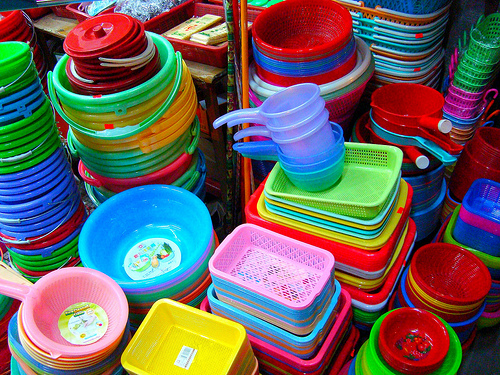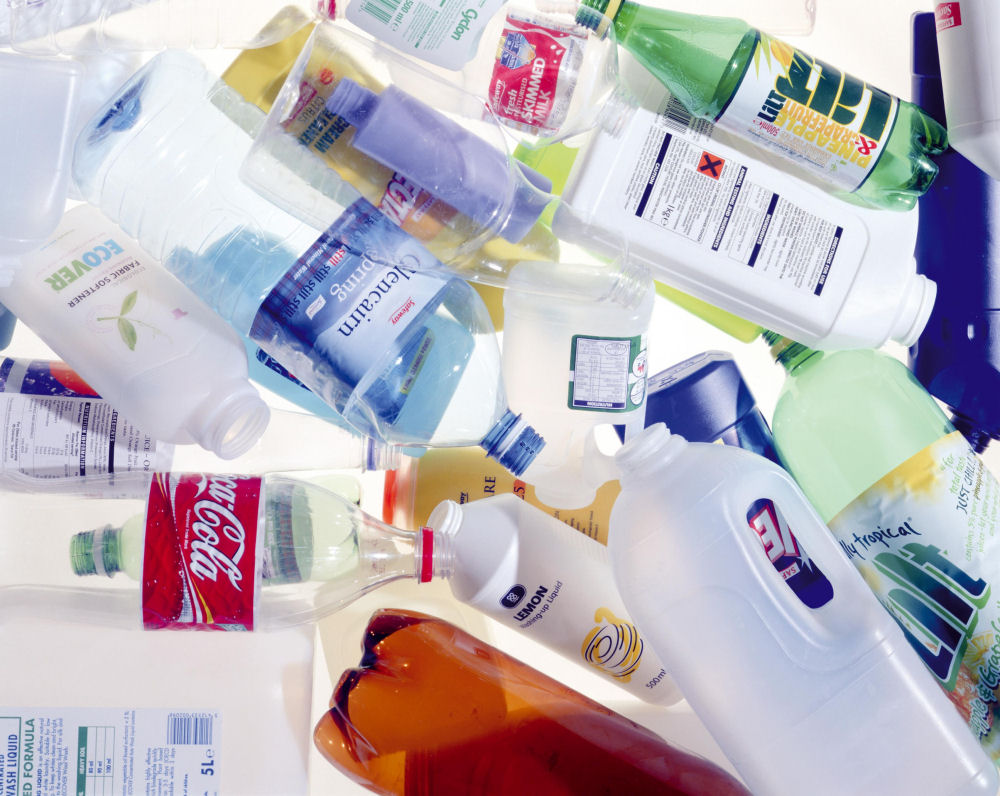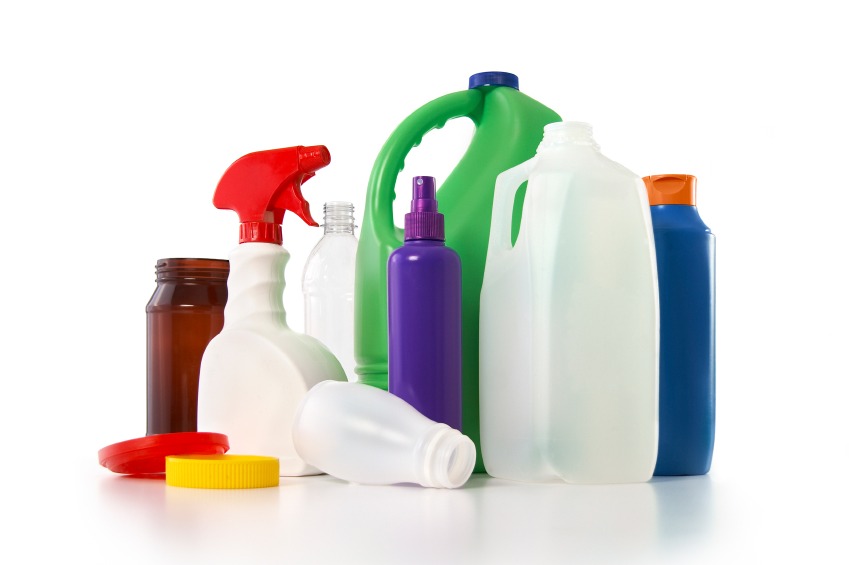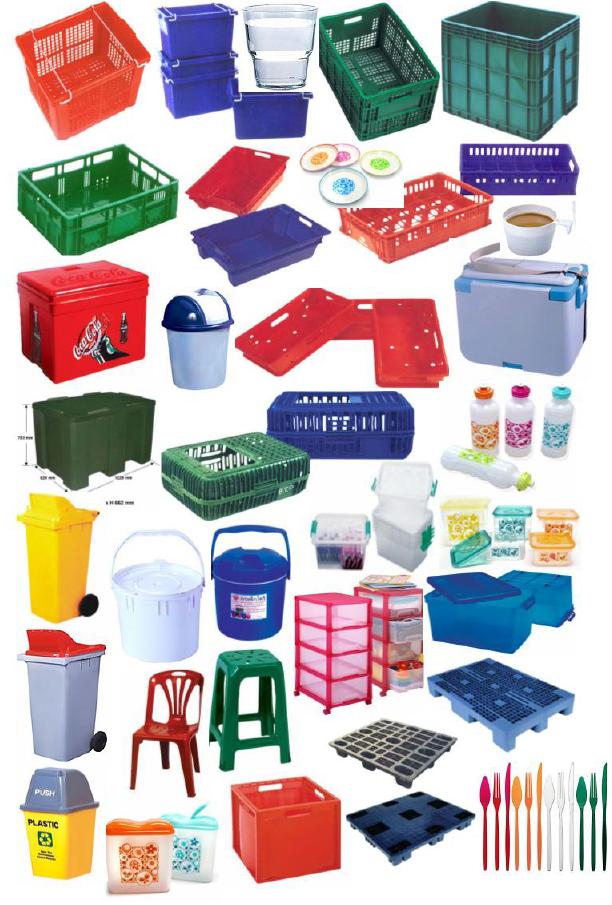PLASTICS
Plastics are commonly known as synthetic resins or polymers. In Greek terminology, the term polymer comprises ‘poly’ means ‘many’ and ‘mers’ means ‘parts’. Thus, the term, polymer represents a substance built up of several repeating units, each unit being known as a monomer. Thousands of such units or monomers join together in a polymerization reaction to form a ‘polymer’. Some natural polymers like starch, resins, shellac, cellulose, proteins, etc are vary common in today’s use. Synthetic polymers possess a number of large applications in engineering work. Therefore plastic materials are fairly hard and rigid and can be readily molded into different shapes by heating or pressure or both. Various useful articles can be produced from them rapidly, accurately and with very good surface quality. They can be easily
produced in different colors or as transparent. They are recognized by their extreme lightness, good corrosion resistance and high dielectric strength. Plastics are synthetic resins characterized as a group by plastic deformation under stress. These materials generally are organic high polymers (i.e. consisting of large chain like molecules containing carbon) which are formed in a plastic state either during or after their transition from a low molecular weight chemical to a high molecular weight solid material.
These materials are very attractive organic engineering materials and find extensive applications in industrial and commercial work such as electrical appliances, automotive parts, communication products bodies (Telephone, Radio, TV), and those making household goods. They possess a combination of properties which make them preferable to other materials existing in universe.
Properties of plastics
The properties of plastics are given as under.
1. Plastics are light in weight and at the same time they possess good toughness strength and rigidity.
2. They are less brittle than glass, yet they can be made equally transparent and smooth.
3. Their high dielectric strength makes them suitable for electric insulation.
4. They resist corrosion and the action of chemicals.
5. The ease with which they can be mass-produced contributes greatly to their popularity as wrappers and bags.
6. They possess the property of low moisture absorption.
7. They can be easily molded to desired shapes.
8. They can easily be made colored.
9. They are bad conductance of heat.
10. They are hard, rigid and heat resistance.
11. They possesses good deformability, good resiatance against weather conditions, good colorability, good damping characteristics and good resistance to peeling.
Plastics are broadly classified into thermo plastics and thermo-setting plastics.
Reference Introduction to basic Manufacturing Processes and Workshop Technology by Rajender Singh.
For engineering project visit this page regularly for know more things related project ideas. Click here to see Ideas of Projects. Engineers Gallery. All the Best!
















Post Comment
You must be logged in to post a comment.